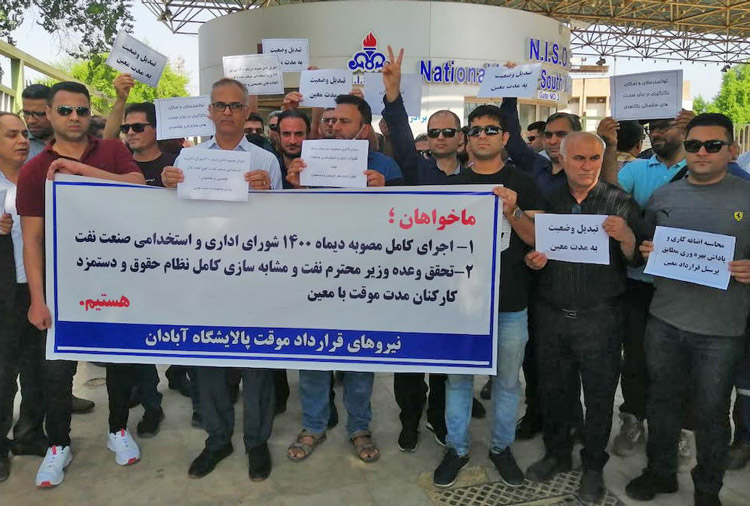Oil refinery workers in five provinces of Iran and on five oil-drilling platforms in the Persian Gulf are protesting over wages, pensions and safety conditions. The protests include both “permanent” refinery and drilling-platform workers — who are among the better-paid workers in Iran — as well as contract workers, who are paid less with fewer benefits. Like other working people in Iran, all have been hard hit by an official inflation rate of 40% a year.
Workers on the oil-drilling platforms began protesting Sept. 25 over a cap imposed on wage and pension increases. They posted photos of groups of dozens of workers holding signs saying “wage ceilings are cruel.”
Their anger at treatment by the oil bosses increased after two workers died from a fire at a Bandar Abbas refinery the same week. The fire “has not caused a disruption in the production of gasoline and other petroleum products,” one oil worker posted online. The bosses “are only thinking about their gasoline production. People’s lives have no value.” The drilling-platform workers announced they will continue weekly protests until their demands are met.
The next week contract oil workers in at least five cities presented a petition to management calling for more workers to be made permanent, for closing the wage gap between contract and permanent workers, and for “bonuses” to cover school expenses for their children. Above, action in Abadan.
Then the Abadan Petrochemical bosses declared bankruptcy. Workers stopped work Oct. 4 to protest six months of not being paid.
In April and May, thousands of oil project contract workers — who build and repair oil installations — had gone on strike. They were demanding higher wages, better food and water, and a more humane work cycle of 20 days on and 10 days off instead of a grueling 24 days in a row with just six days off, and an end to the contract system.


